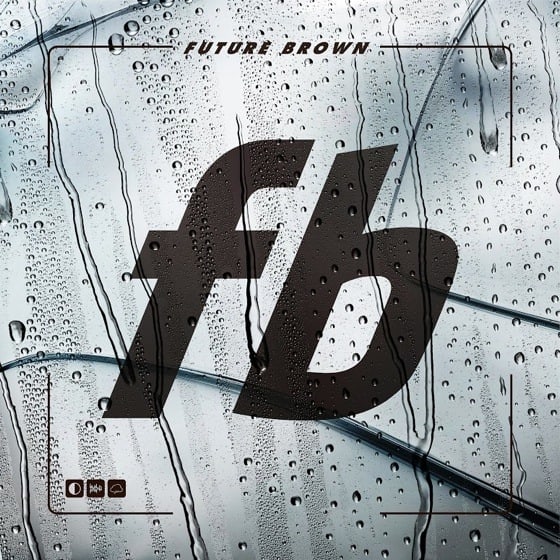The background of electronic supergroup Future Brown is nothing short of eclectic, with each member of the quartet having made noticeable strides within their individual musical circles. Fatima Al Qadiri has been recognized for her work with motifs and melodies from Asian and Muslim cultures, while Daniel Pineda and Asma Maroof of Nguzunguzu and Jamie "J-Cush" Imanian-Friedman of Lit City Trax blend bass, grime and a wealth of other dance floor styles within their club-ready endeavours. On the collective's self-titled debut, Future Brown successfully spotlight this myriad of influences over 11 tracks of futuristic musical hybridity.
A good deal of the record's production is reminiscent of the icy textures and arrangements Al Qadiri employed on last year's Asiatisch, placing an emphasis on minimalism and synthesized instruments. Her mark is felt particularly strongly in the delicate chimes of "Room 302," the bouncy steel drum melody of "Big Homie" and the ominous tubular bells of "Wanna Party." Outside of these calling cards, the quartet explores the flavour of reggaeton with "No Apology" and "Vernáculo," in addition to the aggressive grime of "Speng" and "Asbestos."
This approach gives the record's impressive roster of vocalists plenty of space to work with, ranging from the smoothest of soul singers to the sharpest emcees. Chicago is paid special attention to, with rising vocalist Tink lending her vocals to the opening and closing songs on the record in addition to appearances from the heavily auto-tuned Sicko Mobb and Johnny May Cash, who contributes his syrup-slurring rhymes.
The diversity of Future Brown never once feels overwhelming, making the trip through these sounds from a futuristic dance floor satisfying throughout.
(Warp)A good deal of the record's production is reminiscent of the icy textures and arrangements Al Qadiri employed on last year's Asiatisch, placing an emphasis on minimalism and synthesized instruments. Her mark is felt particularly strongly in the delicate chimes of "Room 302," the bouncy steel drum melody of "Big Homie" and the ominous tubular bells of "Wanna Party." Outside of these calling cards, the quartet explores the flavour of reggaeton with "No Apology" and "Vernáculo," in addition to the aggressive grime of "Speng" and "Asbestos."
This approach gives the record's impressive roster of vocalists plenty of space to work with, ranging from the smoothest of soul singers to the sharpest emcees. Chicago is paid special attention to, with rising vocalist Tink lending her vocals to the opening and closing songs on the record in addition to appearances from the heavily auto-tuned Sicko Mobb and Johnny May Cash, who contributes his syrup-slurring rhymes.
The diversity of Future Brown never once feels overwhelming, making the trip through these sounds from a futuristic dance floor satisfying throughout.
